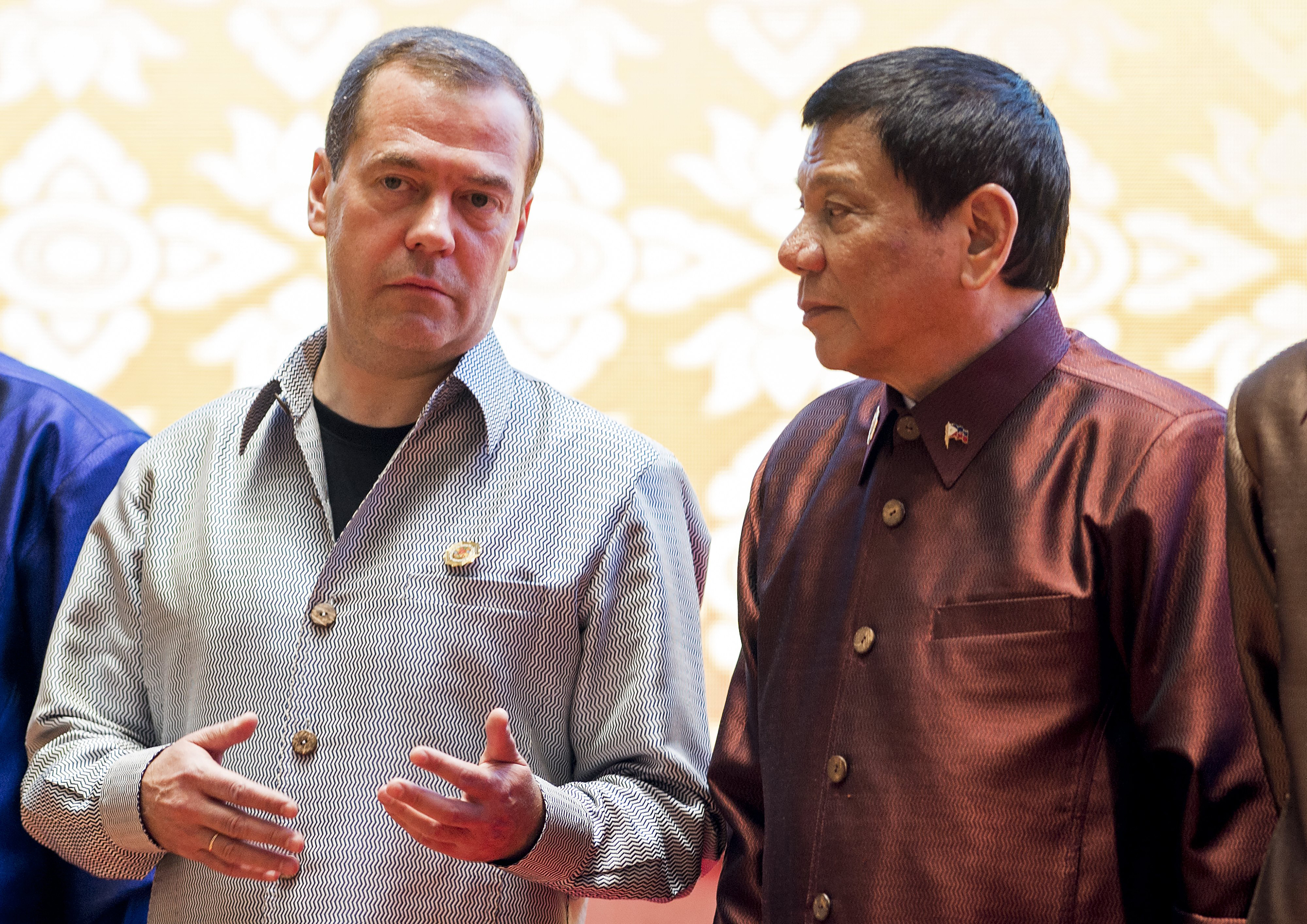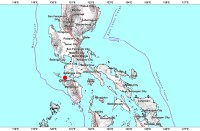
(Eagle News) — Philippine President Rodrigo Duterte said Russia is ready to help in the provision of firearms for the Philippines, and is not bothered with reports that the United States has stopped the sale of assault rifles for the Philippine National Police.
The President said Russia, through Russian Prime Minister Dmitry Medvedev had already offered to help the Philippines by providing the weapons the country needs, when they met in Laos during the ASEAN Summit.
“Remember what the Russian diplomat said? Come to Russia. We have everything you need,” he said.
Duterte has repeatedly said in his speeches that he met with Russian Prime Minister Dmitry Medvedev in Laos and the leader indicated that Russia was ready to help.
“Karaming de bomba dito,” Duterte told reporters.
Malacañang on Tuesday also said the Philippine government could find other sources of assault rifles for the national police if the United States would stop the planned transaction.
Presidential Communications Office head Secretary Martin Andanar said the government could find other means to complete the procurement.
“I will have to talk to the PNP and find out their next move. In any case, I am sure our government can procure somewhere else,” he said.
A Reuters report said the US State Department halted the planned sale of some 26,000 assault rifles to the Philippines’ national police after Senator Ben Cardin said he would oppose it.
Aides said Cardin, the top Democrat on the Senate Foreign Relations Committee, was reluctant for the United States to provide the weapons given concerns about human rights violations in the Philippines.
The relationship between the United States and the Philippines, a long-time ally, has been complicated lately by President Rodrigo Duterte’s angry reaction to criticism from Washington of his violent battle to rid the country of illegal drugs.
More than 2,300 people have been killed in police operations or by suspected vigilantes in connection with the anti-narcotics campaign since Duterte took office on June 30.
The US State Department informs Congress when international weapons sales are in the works. Aides said Foreign Relations committee staff informed State that Cardin would oppose the deal during the department’s prenotification process for the sale of 26,000-27,000 assault rifles, stopping the deal.
State Department officials did not comment.
According to some US officials, Washington has been doing its best to ignore Duterte’s rhetoric and not provide him with a pretext for more outbursts.
An open break with Manila could create problems for the United States in a region where China’s influence has grown. saying that Cardin opposed the sale because of concerns about human rights violations in the Philippines.
The US State Department and President Barack Obama have previously expressed concern over the spate of drug-related killings under the administration of President Rodrigo Duterte.
US Senator Patrick Leahy also previously warned that assistance to the Philippines may be stopped if the drug-related killings continue to soar.
He is the author of Leahy Law, which makes sure that US is not complicit in human rights violations committed by countries that receive aid. (with a Reuters report)







